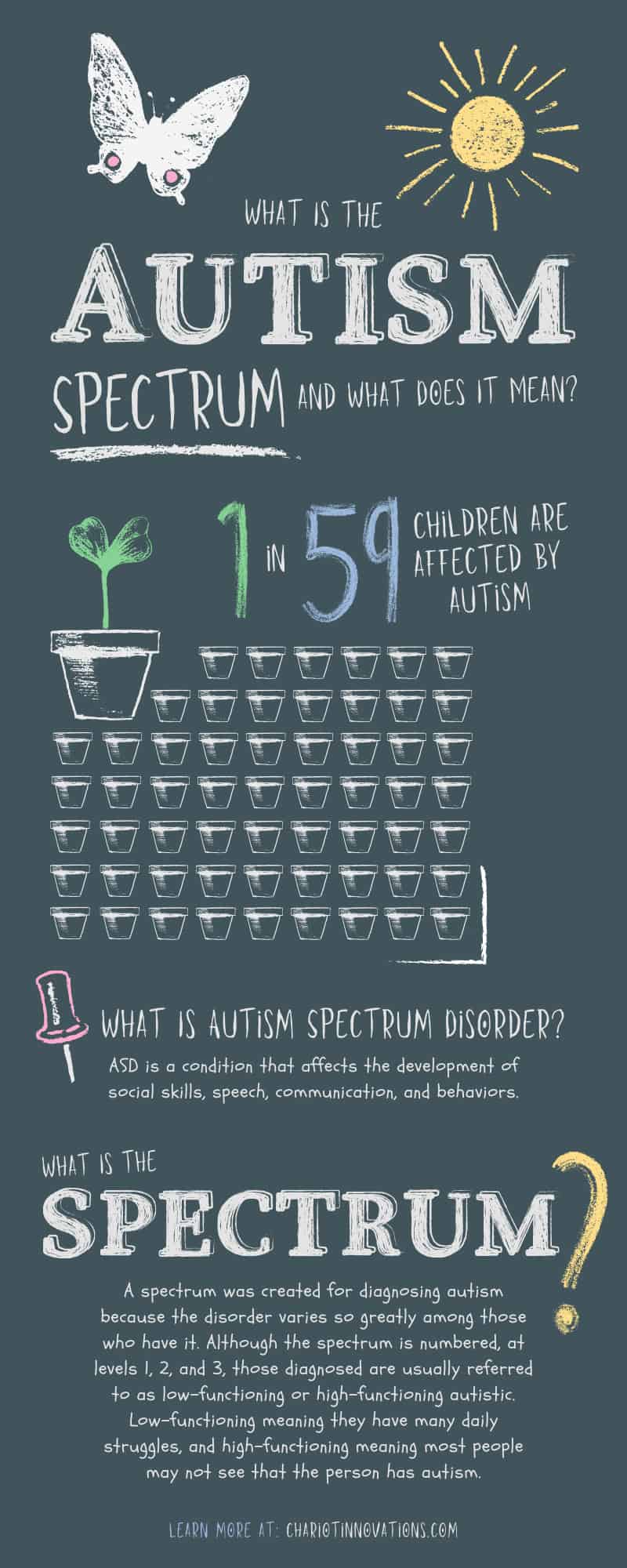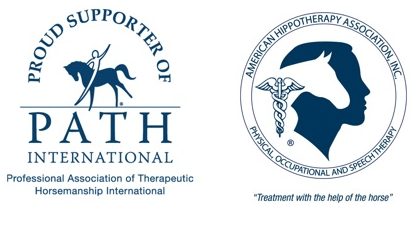An estimated one in 59 children is affected by autism. It’s a topic most of us hear of regularly and hope to understand. Autism is referred to as autism spectrum disorder because the severity varies among those who have it, meaning there are different areas of the spectrum. In this article we’ll clear up some questions considering the question of what is the autism spectrum and what does it mean?
What Is Autism Spectrum Disorder?
ASD is a condition that affects the development of social skills, speech, communication, and behaviors. The effects are seldom the same in each person and can vary from barely noticeable to an inability to function normally in everyday life.
ASD is commonly diagnosed in children, with ages 2-3 being the usual time period when symptoms become apparent. It’s unknown why autism seems to affect boys more often than girls, and when girls do have autism, their symptoms often aren’t severe.
There is no cure for autism, but most people diagnosed go on to live normal lives with the help of therapies and the support of friends and family.
What Is the Spectrum?
A spectrum was created for diagnosing autism because the disorder varies so greatly among those who have it. Although the spectrum is numbered, at levels 1, 2, and 3, those diagnosed are usually referred to as low-functioning or high-functioning autistic. Low-functioning meaning they have many daily struggles, and high-functioning meaning most people may not see that the person has autism.
Symptoms of ASD
As mentioned, symptoms of ASD vary in severity, but there are common symptoms. They include:
- Trouble Communicating: Those with autism may have trouble with back-and-forth conversation. What may seem like a simple conversation to many of us is a struggle for someone with ASD. You may notice your child has difficulty making eye contact, can’t express their feelings when communicating, and doesn’t have the ability to understand the feelings of others.
- Social Skills: A child with ASD has a hard time building friendships, often due to their inability to communicate effectively. When others don’t understand the disorder, an autistic child may, unfortunately, come across as uncaring because they can’t express their feelings or make connections in the way others normally do.
- Restricted or Repetitive Behaviors: A common sign of autism is unusual behaviors that are repeated over and over. For example, the flapping of the arms or hands, playing with toys in an unusual way (for example, repeatedly lining things up), a strong need for a strict schedule, adversity to change, high sensitivity to noises, textures, and smells. These behaviors vary but are usually quite obvious to those who are around the child often.
Diagnosing ASD
There isn’t one test to diagnose autism. Doctors will instead work with parents, come to the conclusion and make a diagnosis of ASD. Usually, the first step is parental concern, then a doctor’s visit. The doctor diagnosing will ask certain questions and listen to what the parents are seeing and hearing in their child. Common symptoms that bring a child in for diagnosis are:
- Showing no interest along with not pointing at objects by 14 months of age.
- Not responding to their name by 12 months of age.
- Small changes are very upsetting.
- Noticeable rocking, spinning, or flapping for long periods or quite often.
- Difficulty making eye contact.
- No pretend play.
- Intense reactions.
- Preferring to be alone.
These are common symptoms used to diagnose ASD, and each one will vary significantly depending on where the child is on the autism spectrum.
Risks for ASD
The risks for autism are unclear. There does seem to be a risk if a parent has autism—which means genes play a role. There’s also the possibility of the child’s environment having something to do with it. However, there is no concrete answer as of yet for the risks of developing ASD.
Parenting an Autistic Child
When a child is diagnosed with ASD, the entire family is affected. Parents worry for their child’s future and also have to learn to handle the here and now as they live with the diagnosis. It’s extremely important to remember that you, as a parent of a child with ASD, need support. It’s easy to focus on what your child needs and forget that you need support as well. Here are some tips for the parent of a child with ASD:
- Create a strict routine in your home which will help your autistic child—and help you in turn.
- Learn as much as you can about the disorder.
- Connect with other parents of autistic children.
- Schedule self-care time for yourself. You’ll be strongly focused on your child, but it’s vital to remember that you have to take care of yourself.
- Seek counseling and ASD support groups if you need someone to talk to.
Therapies for ASD
There are several therapies that have helped many with ASD. As mentioned, there is no cure, but certain therapies may help in coping with ASD and functioning easier in everyday life. Here are some common therapies:
- Occupational Therapy: Occupational therapy helps children with ASD. In this therapy, they work on doing everyday activities. They learn to do things many of us take for granted such as getting dressed, sitting still, or eating.
- Speech Therapy: Speech therapy is available to help those who struggle with communication skills.
- Hippotherapy: Hippotherapy is a recreational therapy that uses horseback riding to improve speech, relationship skills, social interactions, and learning abilities in those with ASD. This has to do with the natural gait felt when riding a horse, the thought process and mental energy used to control the horse, and the emotional attachment toward the horse.
Understanding the autism spectrum and what it means is helpful to parents, those diagnosed, and all of us who are touched by autism in some way. As we understand the disorder, we can then understand those in our community who are living with ASD.
Chariot Innovations believes strongly in hippotherapy for children with autism. That’s why we designed the MiraColt, so those without the opportunity to experience therapy with a horse can still benefit from hippotherapy. We offer hippotherapy simulator equipment for homes and clinical settings. Contact Chariot Innovations, and we can answer all of your questions about hippotherapy and ASD.

